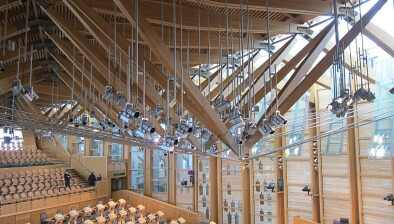Gaelic communities at centre of proposed holiday homes tax debate

Scottish Green MSP Ross Greer has unveiled plans to introduce a new tax on holiday homes and short-term lets in Gaelic-speaking areas, with the aim of addressing the rural housing crisis and protecting the Gaelic language.
Greer’s proposed amendments to the Housing Bill would introduce a surcharge on second homes and Airbnb-style lets in areas designated as “Areas of Linguistic Significance” under the recently passed Scottish Languages Act. These areas include Gaelic heartlands such as Skye and the Outer Hebrides, where the cost and scarcity of housing are pushing local people, particularly young Gaelic speakers, out of their communities.
“Gaelic is an essential part of Scottish culture and national identity, but it is on the verge of extinction as a living language,” said Greer. “Young Gaelic speakers are being forced out of the last communities where it is still the spoken language because holiday homes and short-term lets have driven up house prices to levels they cannot hope to compete with. My proposals would make it harder for wealthier people to buy up second homes and short-term lets in Gaelic-speaking communities and in turn make it easier for locals, especially first-time buyers, to secure their own home.”
Citing the success of recent Council Tax reforms led by the Scottish Greens, which reportedly reduced the number of holiday and second homes across Scotland by 2,500, Greer argued that targeted action can relieve housing pressure and allow Gaelic-speaking communities to “thrive rather than be treated purely as holiday parks for tourists and the super-rich”.
However, the proposals have sparked sharp criticism from the Association of Scotland’s Self-Caterers (ASSC), which has accused Greer of launching an “unevidenced, obsessional attack” on the self-catering sector. They argue that the tax would penalise a vital industry without addressing the root causes of rural housing shortages.
“This is starting to feel less like serious policymaking and more like an unhealthy obsession,” said Fiona Campbell MBE, CEO of the ASSC. “Ross Greer seems more interested in generating clickbait headlines than devising credible solutions to Scotland’s rural housing challenges.”
The ASSC, which represents a sector contributing £1 billion annually to the Scottish economy and supporting nearly 30,000 jobs, emphasised that many short-term lets help keep traditional buildings in use and generate income in fragile rural economies. Campbell added that instead of punitive taxation, solutions should focus on investment in housing and infrastructure that supports both residents and businesses.
The association also criticised Greer’s alleged refusal to meet with the ASSC or engage with stakeholders directly affected by the policy. “Leadership means listening, and sadly his fingers remain firmly lodged in his ears,” said Campbell. “Despite his previous refusal to meet with us, our door remains firmly open.”






